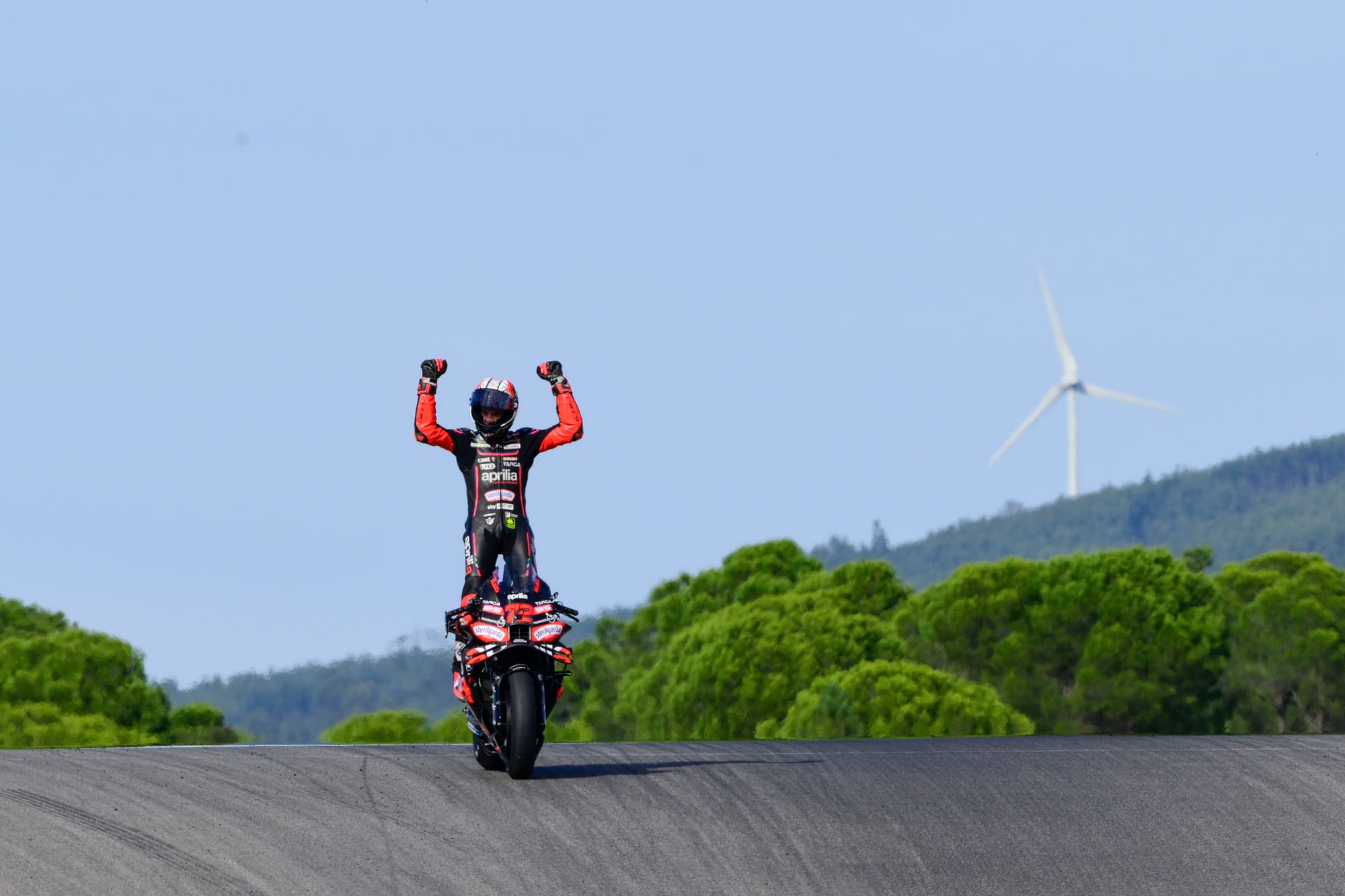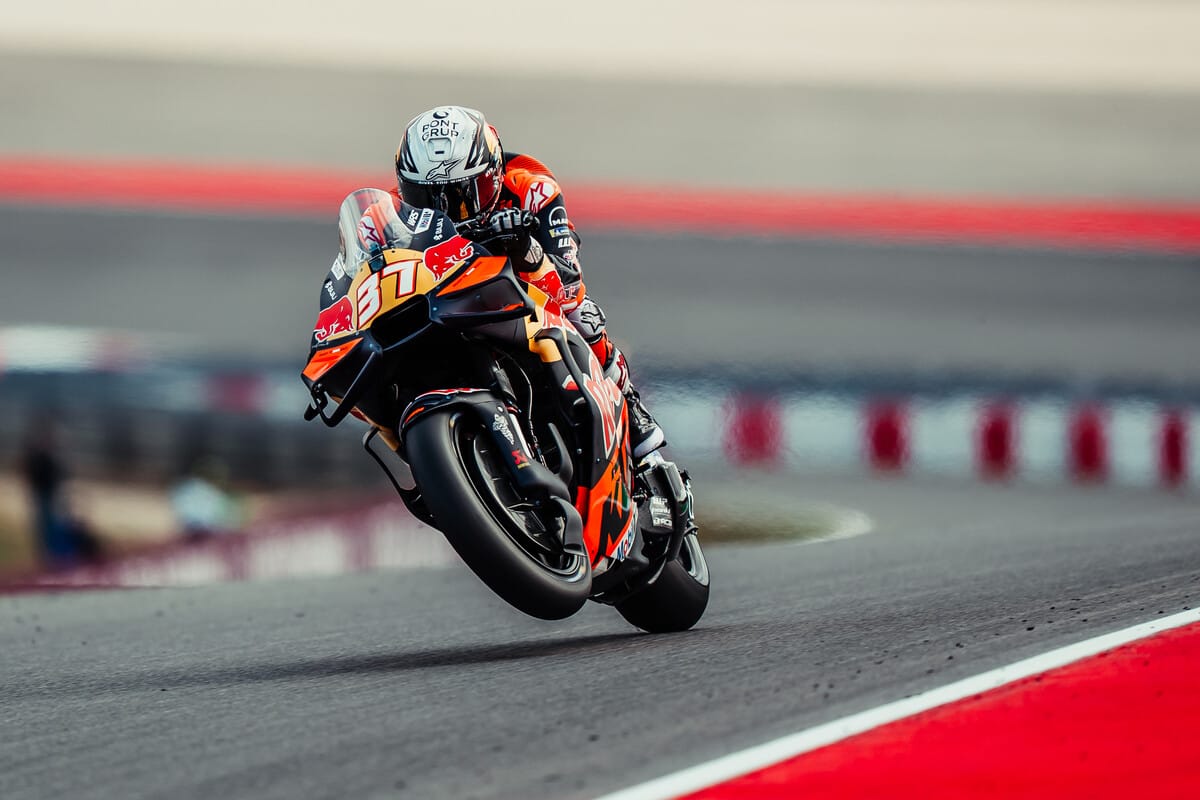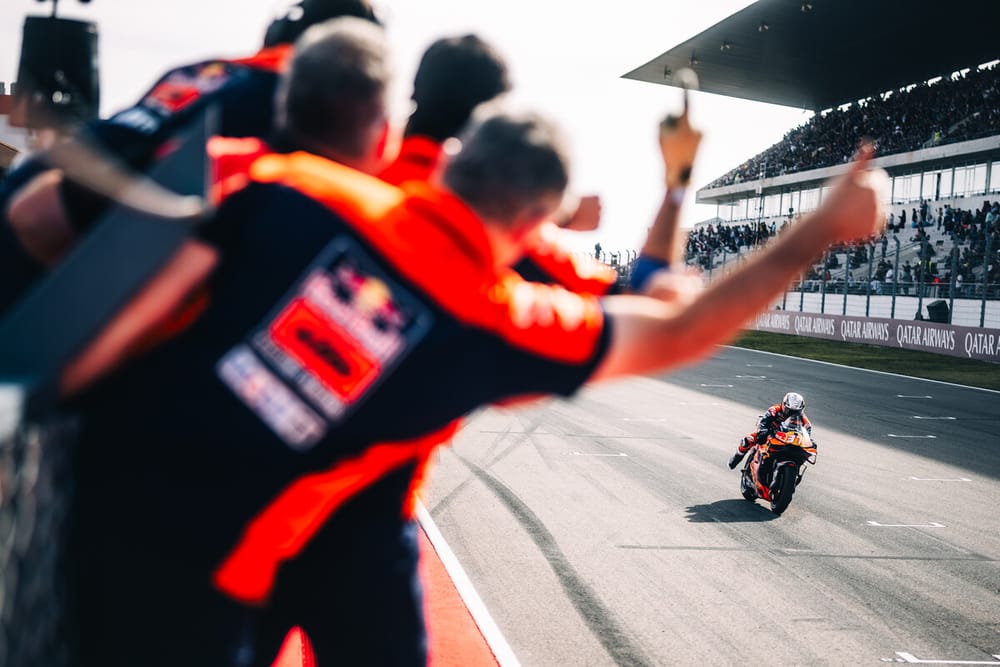In a ride emblematic of Aprilia's incredible recent progress, Marco Bezzecchi stormed to another emphatic MotoGP victory at the Portuguese Grand Prix - on a weekend that, coming in, had seemed written for Pedro Acosta on the KTM.
But while KTM still waits for a first win since 2023, Aprilia is putting finishing touches on the manufacturer's best season in the premier class to date - with Bezzecchi taking Aprilia's third win of the campaign and virtually wrapping up third place in the riders' championship.
For all of the investment, KTM is yet to reach those heights - much less the heights of a manufacturer like Suzuki, which won the title in 2020 with Joan Mir. Both Aprilia and Suzuki have operated with less than KTM, at least up until now, and those successes suggest that sometimes money isn't necessarily the answer to the problems a manufacturer like KTM can face.
Simon Patterson and Valentin Khorounzhiy assessed this theory on The Race MotoGP Podcast this week.
Does spending equal success?

While Yamaha and Honda have decorated MotoGP histories, both of the Japanese manufacturers have struggled in recent years and have found themselves rooted to the bottom of the constructors' standings for the last three campaigns in a row.
KTM has also found itself in a spot of bother following its massive financial crisis, from which it was subsequently saved by new owners Bajaj Auto. However, KTM has had to rethink its approach to MotoGP due to its tighter budget.
Not everyone within the project, though, believes this has been a big hindrance - especially after KTM's previous efforts of "throwing money" at the problems have not yielded the championship bike it's sought.
"We know that KTM have gone through the self-administration, near-bankruptcy," Khorounzhiy explained.
"They have new owners, Bajaj Auto, who are quite interested in cutting costs wherever costs can be cut, and certainly not increasing costs.
"There's also been this perception in MotoGP, and it is a perception shared by some within the structure, that KTM's method of throwing money, throwing parts at the problems that it has had, and also copying as much as it could rather than honing the bike around the strengths that do exist, has just not worked."
Aprilia has consistently had to work above its means when compared to the likes of the KTM, Yamaha and Honda production lines.
"They have had so little money compared to everyone else, including KTM, who have been flush with Red Bull cash and KTM cash up until 18 months ago, until KTM started buying bicycles [and went into crisis]," Patterson added.
"They've been flush with cash, Honda have been flush with cash, Yamaha have more money than they know what to do with - as both of those manufacturers have proved recently by doing things like building three different MotoGP bikes [inline-four 1000cc, V4 1000cc and 850cc prototype] at once or stealing everyone [poaching rival staff]."
Can less be more in MotoGP?

Despite KTM's strife, star rider Acosta is surpassing his results from his rookie season and edging closer to that elusive first victory. He is the second highest-scoring MotoGP rider over the last four rounds, behind only Alex Marquez, and has nearly tripled his points tally since the halfway point of the season.
Three of the four KTM-run entries have delivered podiums (even if Maverick Vinales had his taken away due to tyre pressures) - but KTM will need to keep on this upward trajectory if it wants to keep Acosta beyond the current contract cycle.
Khorounzhiy said: "Having to work within limits might actually be helping KTM. It feels a little too rosy and nice to me as a theory but it could be the case."
Patterson added: "The thing that makes me think there is actually something to it is that arguably the two manufacturers that have consistently punched above their weight in MotoGP in the last five years have been the two with the lowest budgets, in Suzuki and Aprilia.
"There is loads of funding in those [Honda, Yamaha and KTM], and there has not been in Aprilia and Suzuki. I've been to Aprilia, I've seen the size of the race department at Noale compared to the size of the race department in Mattighoffen [KTM's base].
"The KTM motorsport division is probably bigger than the entire Aprilia production campus at Noale, just such different production scales, and yet we're talking about another emphatic Aprilia weekend and I remember being here [at Portimao] a few years ago for Suzuki celebrating a world championship.
"There is an argument to be made that MotoGP is not F1 and throwing money at things is not a solution, it's not actually the way you get out of problems and less is more."
Yet the boost of tightened purse strings and a clearer focus, if it is real, can only take KTM so far.
Whether it has truly thrown good money after bad at its RC16 bike, it still needs Bajaj to sign off on the continuation of the MotoGP programme in 2027 - even if the 850cc engine is already running on the dyno - and to keep up the supply of bikes to a customer team, and to prevent top minds from being lured away by rivals.
And it needs the budget to keep Acosta who, though not thought to be particularly money-orientated, does look like someone keenly aware of his worth to any project.



